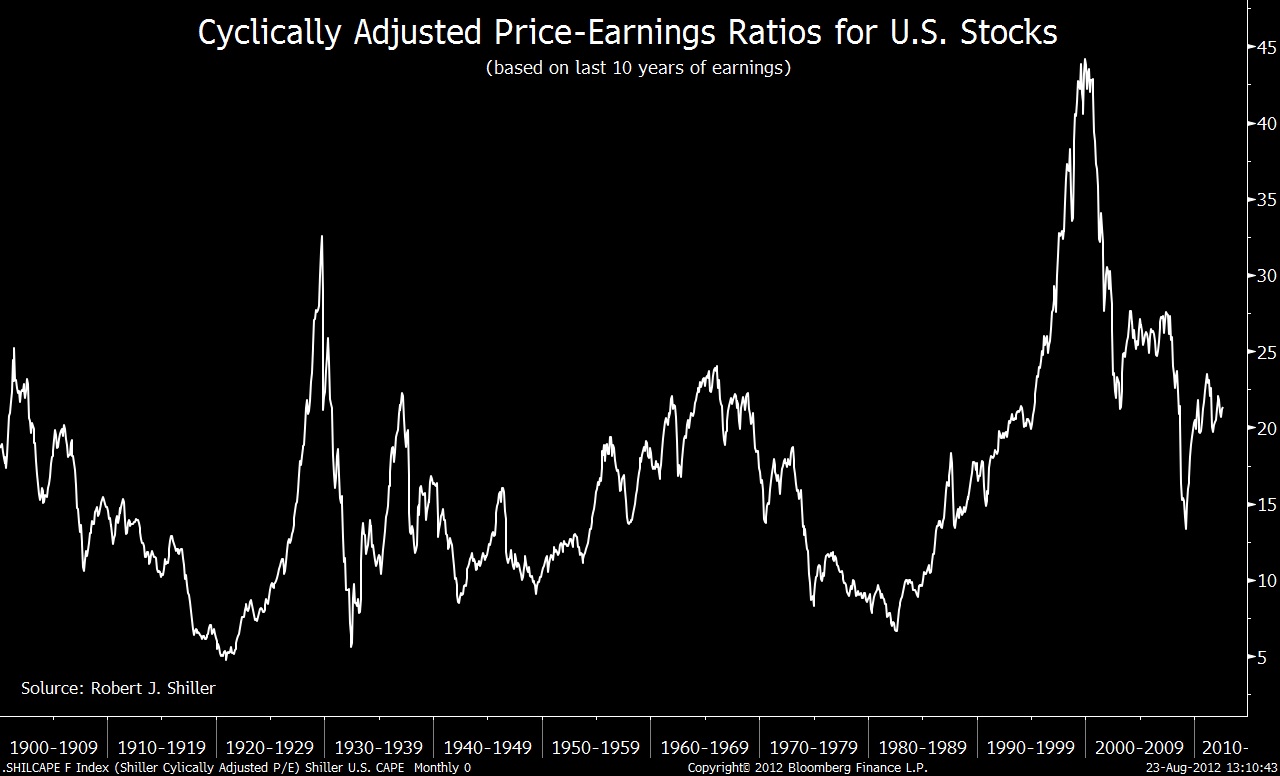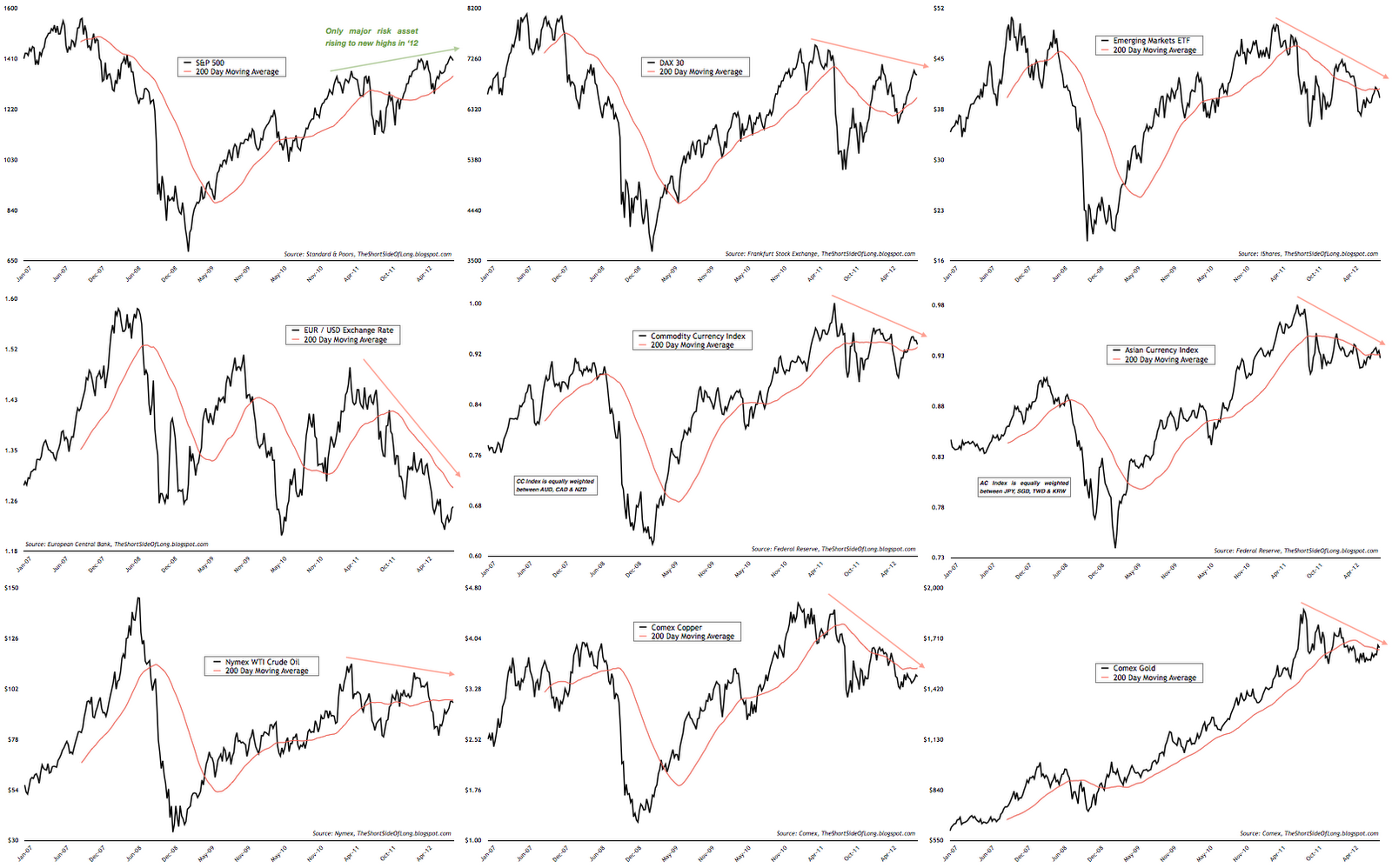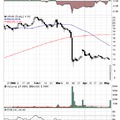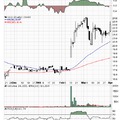Még mindig nem történik semmi, S&P 1400 körül álldogál immár hetek óta, mintha odaragasztották volna - lassan tér vissza az élet. Tegnap annyi érdekesség volt legfeljebb, hogy felülteljesített a Russel (négyhavi záróár csúcs), nem szokott mostanában.
------
Olvasnivaló:
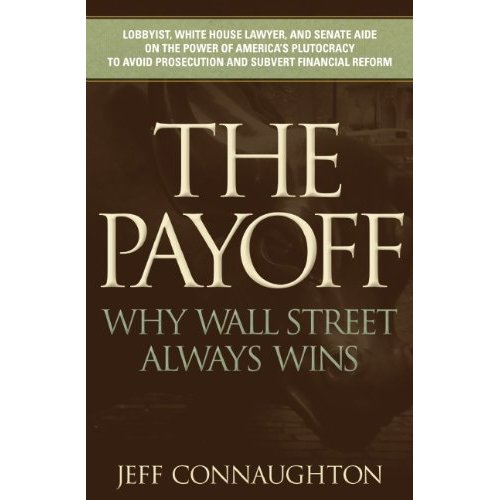
-----
In the latest month, sales of Ford F-Series trucks rose by 19.3% to 58,201. Year to date, Ford has sold 407K F-Series trucks, putting it on pace for an annual run rate of 610K. If sales meet or exceed that level, it will be the highest annual total since 2007 when the company sold 690K F-Series trucks.
-----
First here is an excerpt from a Reuters article in October 2006:
The U.S. housing market appears to be emerging from its recent travails and the “worst may well be over,” former Federal Reserve Chairman Alan Greenspan was quoted as saying on Friday.
“I suspect that we are coming to the end of this downtrend, as applications for new mortgages, the most important series, have flattened out”, Greenspan said at an event in Calgary, Canada ...
Of course Greenspan was wrong (as I noted at the time). Here was what I previously wrote: "In mid-2006, the MBA index did flatten out, and in late 2006 the index increased (and increased further in 2007). At that time I spoke with some mortgage brokers, and there was clear evidence of homebuyers applying for mortgages with multiple brokers - this lead to some double counting by the MBA. And in late 2006 the increase was because mortgage brokers started going out of business (this skewed the data, because the MBA samples only certain large brokers – and the large brokers were getting more applications as the weaker companies went under). I identified these flaws and stopped using the MBA index, but Greenspan blindly used the index and drew the wrong conclusion."
Now I'm wondering if the index is being impacted by another change in the mix. Here was an interesting article today from Jon Prior at HousingWire:
California credit unions took advantage of the Home Affordable Refinance Program and originated twice as many home loans in second quarter than the previous three months.
...
Chris Collver, senior regulatory analyst for CANV, said the trend will continue as large firms grow more conservative or exit the more exotic mortgage business entirely.
Credit unions took up about 2% of the space in 2005. That grew to 6.7% of the home credit market in 2011, according to Collver.
Prior's article is focused on refinancing (the MBA Purchase index is for purchases, not refinance activity). But I wonder if some lenders who are not surveyed by the MBA are seeing an increase in activity? It is a puzzle ...
------
Meb Faber of Cambria Investment Management looks at 10 years of earnings. Based on a methodology developed by Yale University Professor Robert J. Shiller, Faber concluded from an analysis of cyclically adjusted price-earnings ratios, designed to minimize the effect of economic swings on profits.
Investing in markets whose ratios were in the bottom third at the start of each year would have produced inflation-adjusted annual returns that beat the global average by four to seven percentage points. Markets with ratios in the top third trailed by a comparable amount.
The results point to “significant outperformance by selecting markets based on relative and absolute valuation,” Buying only when CAPE was below 15 and shunning markets with ratios higher than 30 led to higher returns, the research showed.
------
Despite the ECB's rhetoric on defending the euro that pushed up global risk asset valuations, the underlying issues of the Eurozone have not been resolved. Signs of the run on Spain's banks are once again in the press.
WSJ: - The latest trouble is the inability of Spanish banks to finance themselves through usual means. Capital markets remain largely shut because investors refuse to buy bank bonds at affordable prices. And customers, nervous about the banks' health, are increasingly yanking their deposits.
In one sign of the mounting pressures, the Bank of Spain appears to have started providing emergency loans to some of the country's banks, according to central-bank data and industry officials [this is alarming because it means that some Spanish banks have run out of eligible collateral].
Európában csak a szokásos helyzet, semmi sem lett megoldva, egészen elképesztő ez a fajta lassú reagálás, ami Brüsszelben tapasztalható.
------
China's slowing economy continues to pose a major risk to global growth. Here are a number of updates:
1. Imported iron ore prices continue to decline. Stories abound of desperate sellers dumping at below official market levels and buyers defaulting on purchase agreements. Steel prices are at new recent lows as well and the steel industry is in deep trouble. Part of the problem has been overproduction by steel mills owned by local governments who are in desperate need of revenue.
2. Exports are slowing. The ISI Group combined the official and the Markit PMI numbers into a single set of indices. Here is the chart for the exports portion of the PMI.
3. ... While finished goods inventories are rising
4. Housing prices have actually been rising. At first glance this may be an indication of good news, but it actually points to an escalating battle between Beijing and the local governments. Beijing wants to keep housing prices under control to prevent a housing bubble driven by speculation. China's municipalities don't want the music to stop because land and housing has made politicians and their friends rich and continues to provide government funding. The central government will push even harder to tighten controls on housing sales practices in an attempt to arrest these increases. This will make implementation of stimulus programs more difficult.
5. China's banking sector is now under pressure as "bad loans" begin to rise. On one hand local businesses are complaining to their politicians that banks are refusing to roll some existing loans - while politicians pressure banks to do so. On the other hand bank regulators don't want to see non-performing loans increase. Much has been swept under the rug for now because the definition of "nonperforming" is still in the eyes of the lender.
6. Finally, China's stock market hit another post-09 low this morning, continuing this relentless bear market in domestically listed shares.
-----
Az S&P500 jól tartja magát a csúcs körül, pár egyéb eszköz nem néz ki ilyen jól:

